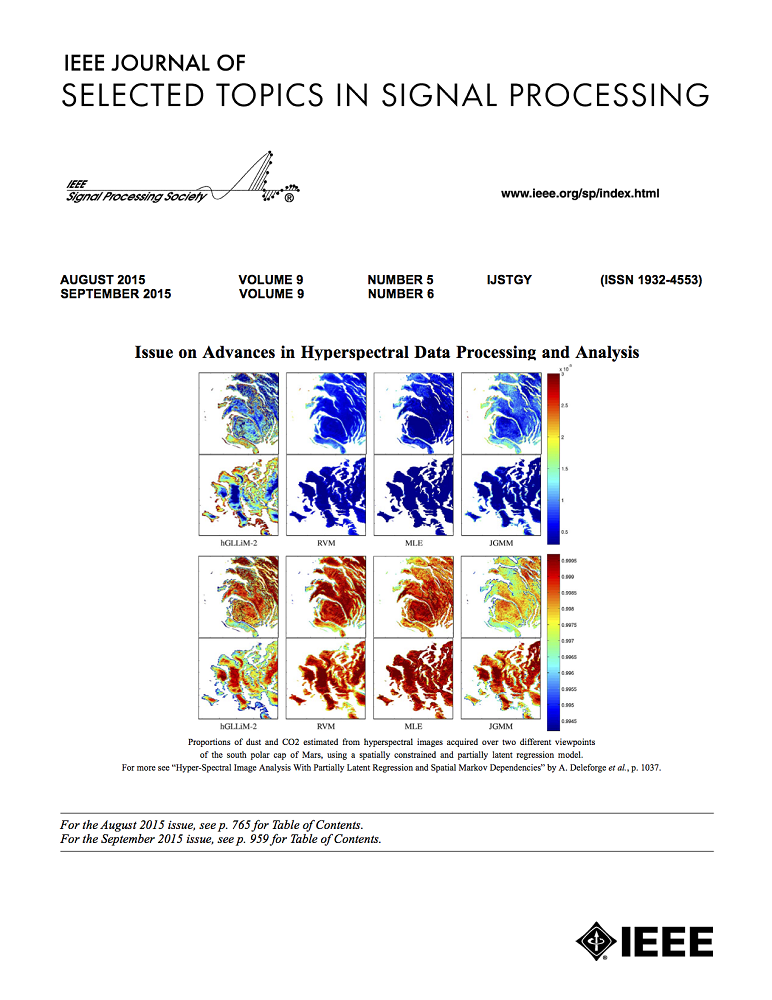A Quality-of-Experience Database for Adaptive Omnidirectional Video Streaming
IF 8.7
1区 工程技术
Q1 ENGINEERING, ELECTRICAL & ELECTRONIC
IEEE Journal of Selected Topics in Signal Processing
Pub Date : 2023-08-01
DOI:10.1109/JSTSP.2023.3300529
引用次数: 0
Abstract
Recent advances in virtual reality (VR) technologies and devices have enabled new forms of media content, such as omnidirectional video (ODV) that attracts increasing attention of both academic and industrial communities. Omnidirectional video, which is also called自适应全向视频流的体验质量数据库
虚拟现实(VR)技术和设备的最新进展使新形式的媒体内容成为可能,例如全方位视频(ODV),吸引了学术界和工业界越来越多的关注。全向视频,也叫360°视频,代表全景球形视频,可以给用户身临其境的观看体验。与传统的2D视频相比,odv的复杂性(高分辨率、带宽密集等)给在不稳定的网络条件下对其进行流化和对终端用户的体验质量(QoE)进行建模带来了新的挑战。为了满足实际VR应用的需求,需要设计有效的自适应比特率流(ABR)和odv的QoE评估方法。在本文中,我们建立了一个大型的全方位视频流QoE数据库(VRQoE-JUFE),该数据库包含1440个自适应流odv,这些odv是由多种内容生成的。进行了全面的主观实验,收集了180名被试的观看行为和人的意见。我们提供了全面的统计数据分析,并在建议的数据库上对最先进的目标QoE模型进行了性能评估。结果表明,ODV流的QoE建模是一个极具挑战性的问题,有很大的改进空间。许多有趣的观察结果可能会对未来全向视频QoE建模和ABR策略的改进有所启发。来自测试的注释数据集公开提供给研究界。
本文章由计算机程序翻译,如有差异,请以英文原文为准。
求助全文
约1分钟内获得全文
求助全文
来源期刊

IEEE Journal of Selected Topics in Signal Processing
工程技术-工程:电子与电气
CiteScore
19.00
自引率
1.30%
发文量
135
审稿时长
3 months
期刊介绍:
The IEEE Journal of Selected Topics in Signal Processing (JSTSP) focuses on the Field of Interest of the IEEE Signal Processing Society, which encompasses the theory and application of various signal processing techniques. These techniques include filtering, coding, transmitting, estimating, detecting, analyzing, recognizing, synthesizing, recording, and reproducing signals using digital or analog devices. The term "signal" covers a wide range of data types, including audio, video, speech, image, communication, geophysical, sonar, radar, medical, musical, and others.
The journal format allows for in-depth exploration of signal processing topics, enabling the Society to cover both established and emerging areas. This includes interdisciplinary fields such as biomedical engineering and language processing, as well as areas not traditionally associated with engineering.
 求助内容:
求助内容: 应助结果提醒方式:
应助结果提醒方式:


